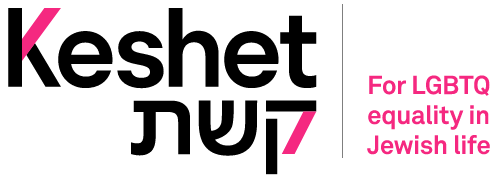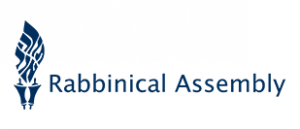Parashat Pinchas: Social Sacrifice and Pluralism
Sermon given July 19, 2025
Shabbat shalom, everybody!
Exhibit A:
A few weeks ago, a child in the TBE community asked me what my cat’s pronouns were.
This, first of all, absolutely delighted me. It also showed me that this is a community that so values honoring a person’s sense of self that our kids are applying those values across species.
Exhibit B:
There is a rainbow flag hanging in the window in my office. I did not put it there. Rabbi Estrin did not put it there. No, Rabbi Braun put it there– meaning it has now graced the offices of three TBE rabbis in a row– and this teaches me that it is ingrained in this congregation’s culture to proudly and publicly support marginalized individuals and to celebrate diversity and identity, even before it’s popular. This is a congregation that demonstrates that we are ALL made b’tzelem elohim, in God’s image.
Exhibit C:
Elijah’s chair, a ritual piece of furniture used to welcome babies into the covenant, also sits in my office. TBE’s version of Elijah’s chair was hand-painted and decorated with colors and flowers by TBE’s children. Unlike other Elijah’s chairs I’ve seen, which have been more ornate, or larger, or covered in rich fabrics– TBE’s Elijah’s chair is handmade and wooden. It is humble, collective, beautiful, and one-of-a-kind– and it reflects the multi-generational joy and heimisch nature of this synagogue.
And finally, Exhibit D:
A week after moving to Portland, I had the first-time experience of buying kosher meat out of an unmarked van in a parking lot. This taught me that the Jewish community in Portland is willing to go to great lengths to remain connected to our traditions, while also living here, and being present here, living lives both in a uniquely Jewish way and also deeply intertwined with the other Mainers and from-away-ers around us.
Each of these experiences has given me a glimpse into the communal values of TBE, and what I have learned makes me feel honored to count myself as one of you.
Now, we’ve had a rich set of Torah portions recently, and they’ve all been ones that inspire us to take a look at our communal values. Two weeks ago, Parashat Chukat opened the door for a discussion about approaching transitions in a way that reflects our values; last week, Parashat Balak inspired a conversation about how to live our values when under duress, or in the face of a culture or leadership that is telling us to act against what we deeply believe.
This week continues the trend, but in a slightly different way. This week, we are going to focus in on one specific ancient value in our Torah– a specific and difficult value– and then examine how it can relate to us today. It just so happens that this is a value that, while hard to stomach, is also one I believe TBE excels at.
It’s a value which is embedded in a very rich and detailed parasha, including the aftermath of Pinchas’ bloody and zealous actions; a thorough census of the Israelites; the actions of the brave daughters of Tzelophehad, advocating for themselves in the face of misogyny; and Joshua, son of Nun, being tapped to be the next leader of B’nai Yisrael after Moses’ passing.
But then abruptly, when we reach the final chunk of Parashat Pinchas, which, thanks to our triennial Torah reading pattern is what we just read this week, things change. There’s no more narrative, no more stories. Instead, you and I just heard seven aliyot, plus a maftir, full of a review of the major holidays: Passover, Sukkot, Shavuot, Rosh Hashanah, etc., and listing off every single one of their corresponding sacrifices– seven he-goats here, twelve rams there, two bulls there.
And I don’t know about you, but nothing gets me more in the Shabbat state of mind than reading seven aliyot about animal sacrifices.
Because sacrifice, in all its messiness, is the value we are going to focus on today. The sacrifices our Torah describes are numerous, and bloody, and can be incredibly difficult for us as modern Jews to relate to. This is both because, ever since the destruction of the Temple, animal sacrifice has been replaced with thrice-daily prayer services, to which we are now accustomed; and partially because our sense of collective morals and responsibility have evolved.
And yet– there is no denying that for our ancestors, sacrifices would have been a normal, routine, intense part of life. The root of the word korban, or sacrifice, is the same as karov, being close to something. And this makes sense, because for our ancestors in the desert, sacrifices would have been the practical way to be closest to God, by sending up the smoke, the reach nichoach (the pleasing scent) to the Holy One. Regularly practicing sacrifice would have been a core value to them.
And it was a core value even though it meant giving up property and security. Because even millennia ago, our fledgling society grasped the truth that sometimes, giving up resources, whether to communal causes or to God, has deep value. The urge to belong to something beyond ourselves, and give of ourselves on its behalf, that is, to sacrifice for it, is in fact one of the most human things we do. Because ultimately, that’s what sacrifice is: doing something we don’t want to do, or giving something up that we want, in the name of something bigger than ourselves, something beyond us that is so important to us.
I mean, consider the alternative to sacrifice. Imagine, for a moment, how it would be if we lived in a world where none of us were beholden to anything beyond ourselves. Imagine living a life where you didn’t believe anything was worth sacrificing for– where there was nobody you would lay your life down for, let alone be willing to sacrifice money and time and resources for. Imagine never, ever having a cause you believed in so strongly that you wanted to march or protest for or donate to, sacrificing time and energy and funds. Imagine not having a community like this one, whose success you were invested in, and which tied you into both the past and the future, and for which you were also prepared to sacrifice.
The Midrash in Sifrei Bamidbar explains to us that the frequent use of verbs conjugated in the plural in Parashat Pinchas while discussing sacrifice means that, quote
שיהו כהנים ולוים וישראלים עומדים עליהם
That not just the priests, and not just the Levites, but ALSO regular, good-old-fashioned “Jews in the Pews” from B’nai Yisrael were present for and involved in the process of sacrifice. This was something the priests were responsible for carrying out, yes, but each member of the Israelite people was bound into the system.
To actively belong to something means to be ready to give to something, to sacrifice to something, and that is a reality that touches every. Single. Member. Of this community.
At the beginning of this sermon, I mentioned that I think that sacrifice is a value that TBE excels at. Of course, I don’t mean that we excel at killing animals– chass v’shalom. What I meant was that it is clear from me, even after only three weeks as your rabbi, that TBE is a community built by Jews who want to live intentionally connected, intentionally mutually supportive lives, and you demonstrate this in myriad ways. This is also a community that intrinsically understands the conclusion from Sifrei Bamidbar– that it is incumbent upon all of us, not just on our leadership, to be a part of these sacrifices.
You’ll recall that I also started this sermon with a list of ways that the citizens of TBE have already charmed me. The common thread through each occurrence I named, though– the respectful curiosity, the cross-generational joy, the respect of the identities of others, even the van full of kosher meat in a parking lot– is the fact that this synagogue’s existence and success was built and is maintained by countless tiny decisions made by all its members, every day, that respect the rights and dignity of others, and sacrifice our human desire to be the fastest, the richest, the ones on top.
As Jews and as citizens of the world, we are offered endless opportunities– whether in how we eat, how we speak, how we donate our money, how we spend our time– opportunities, every single day, to make ancient values new again, to make them our own. But interwoven in these opportunities is the ancient value of sacrifice, pervasive in our Torah.
And I see countless ways that members of the TBE community are embodying the value of sacrifice, in big and little ways.
Everyone here today, and everyone watching online, has sacrificed a Saturday morning to be in community. When we dedicate ourselves to prayer and to showing up for synagogue activities, we are sacrificing time and energy in order to keep ourselves and the Jewish people alive and spiritually nourished.
When we give money in dues, in donations, and to causes we believe in, we are sacrificing our funds in order to build a better world. TBE members have been incredibly generous, both in annual campaigns and targeted giving, supporting the greater community and each other.
And yet one of the most impressive types of sacrifice I have witnessed already in my time at TBE is the crucial social sacrifice required to peacefully and respectfully exist in community with those who have different viewpoints.
I have delighted in my meetings with congregants and leadership so far at TBE, who have not only expressed a wide variety of opinions and beliefs regarding everything from halacha to Israel to politics to kashrut, but who are also eager to establish classes, discussions, and safe Jewish spaces specifically so that we can explore these and our differing opinions topics together.
And this, too, is sacrifice. Because on some level, we all want to be right, and we want to be supported in our beliefs and surrounded by people who agree with us. That means that when we make the choice to give grace during an argument, or to bite our tongue before lashing out, or to put in the extra effort to find a compromise, we are in fact sacrificing the desire to be right in order to be in community and in relationship to one another.
These are difficult times for our country and world, and sacrificing our urge to dig in our heels and stubbornly refuse to compromise is not only a gift to each other, it is brave. It is counter-cultural. And it is sacred.
And with the current state of the world, the country, war in the Middle East, and the deep social divides across the board, it is likely that in the coming months we will in fact be asked to sacrifice even more. More time. More resources. More energy.
We will be called on to model again and again, for ourselves and others, the social and conversational and communal sacrifices necessary to remain a safe and pluralistic space during this difficult time.
And there will be times when some of us have more or less to give, and vice versa— whether we are talking about funds, or brainpower, or heart-and-soul power. We will all have moments where we say, I cannot give anymore. And where others will have to step up and say, that’s ok, right now, I can give more.
As we prepare to face the months ahead, I bless us all with the reminder of how lucky we are to have each other and this community and this society— that is to say, how lucky we are to have things worth sacrificing for.
And there is no other place I would rather be than right here, making those sacrifices with all of you. Shabbat shalom.



